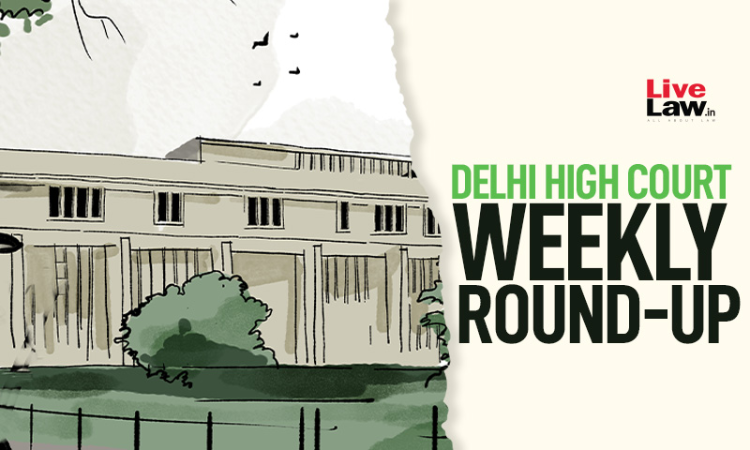Delhi High Court Weekly Round-Up: December 5 To December 11, 2022
Nupur Thapliyal
11 Dec 2022 12:16 PM IST

Next Story
11 Dec 2022 12:16 PM IST
Citations [2022 LiveLaw (Del) 1145 TO 2022 LiveLaw (Del) 1161] NOMINAL INDEX MRS. X v. GNCTD & ANR. 2022 LiveLaw (Del) 1145 SUSHIL KR. JAIN( ADVOCATE) v. UNION OF INDIA & ORS. 2022 LiveLaw (Del) 1146 MUNICIPAL CORPORATION OF DELHI vs GOVT OF NCT OF DELHI & ANR. 2022 LiveLaw (Del) 1147 SHWETA v. GNCTD AND ANR 2022 LiveLaw (Del) 1148 Spectrum Power Generation Limited v....
